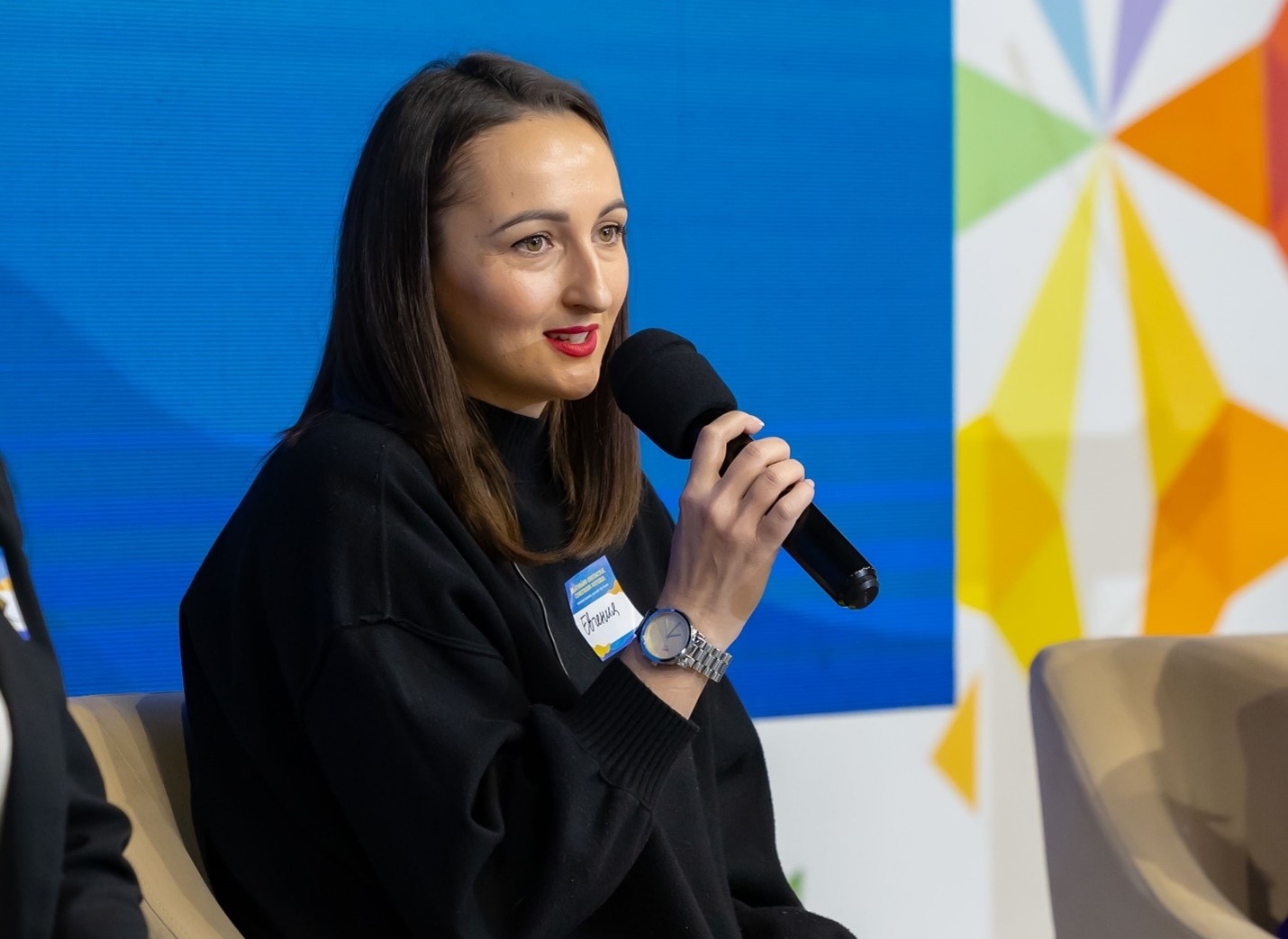Resilience through technology: The professional transformation of a refugee woman
Date:

Evghenia Hutsuliak is a refugee from Odessa, Ukraine, who took refuge in Moldova following Russia’s full-scale invasion of Ukraine in hopes of finding a safe place for herself and her two children. Upon arriving in Moldova, like many refugee women from Ukraine, Evghenia faced a series of obstacles and difficulty, including the need to adapt to a new reality and find financial stability.
Amidst difficulties, Evghenia discovered the WoW programme, which gave her the opportunity to requalify for work in the information technology (IT) sector, a dream she had long cherished even back when "home" meant Ukraine. Her story is not just about the determination and courage of a mother to secure a better future but also about the importance of access to education and professional training in crisis situations.
"The WoW programme was like a ray of light in the darkness for me," recalls Evghenia. "I was in a very difficult psychological state and didn't know which way to turn. Back then, when I didn't feel like talking to anyone, I stumbled upon this course among the numerous messages in an online group dedicated to refugee mothers. I felt it was exactly what I needed at that moment and didn't hesitate to apply. I was deeply impressed that this course was completely free and that no one expected anything in return from me. It was like a breath of fresh air and a new source of motivation to break free from the dead end."
By participating in software testing (QA) courses offered through the programme, Evghenia developed the technical skills necessary to enter the IT job market – and also regained her confidence in the process.
"The course was not only about learning new skills but also about building a community," explains Evghenia. "I had the opportunity to interact with people who shared the same desire to learn and progress. It was a huge support for me in difficult times."
Today, Evghenia is optimistically looking toward the future. After successfully completing the software testing (QA) course, she is determined to find a job in IT and continue her professional journey in this field.
"Through this initiative, we are encouraging more young women to get involved in science and technology," says Tatiana Udrea, a Programme Coordinator at UN Women Moldova. "In this way, the UN Women team is making continuous efforts to reduce inequalities, especially considering that we live in a digital age, and excluding women from this field would keep them out of decision-making processes and development."
Irina Oriol, Director of Operations at the National Association of ICT Companies (ATIC) Moldova, also supports the programme. "We are delighted that our entire effort is generating visible results,” she says. “We see active involvement of girls and women in the IT sphere, and our mission is to encourage them to develop their professional skills, offering facilities even for girls and women from underrepresented or refugee backgrounds from Ukraine."
Women’s participation in the IT sector generates new employment opportunities, and it also helps reduce gender disparities and wage inequalities. The flexibility of this profession makes it easier for women to balance work with childcare, thus offering them new ways to balance personal and professional life. According to the study "Motivations and Barriers of Girls and Women in STEM and ICT Fields," in the Republic of Moldova, women and girls are underrepresented in the Information and Communication Technology (ICT) sector. They occupy only 31 per cent of jobs in the sector and 19 per cent of digital professions.
The WoW programme was implemented as part of the project "Creating Opportunities for Economic Resilience of Women from Local Communities and Women Displaced from Ukraine" by ATIC, with the support of UN Women Moldova and funding from the governments of the United States and Japan. The programme offers participants technical skills, career opportunities, mentoring and community support. Specific courses for the programme, including Social Media Management, Software Testing, Project Management and Graphic Design, were designed to meet the growing demand for these skills in the labor market and increase the number of girls and women active in these fields. In 2023, over 200 women from Moldova and Ukraine participated in the "Women in Online Work" (WoW) programme, taking advantage of opportunities for their personal development and professional requalification.